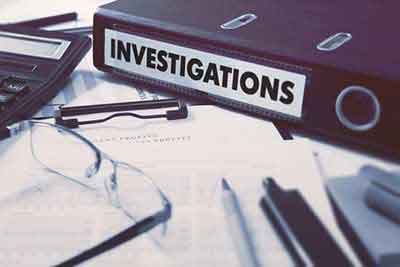Questions to Ask Your Boyfriend to Gauge Trust and Honesty in Your Relationship
Trust is the lifeblood of any relationship, but sometimes, doubt can creep in like a whisper in the dark, leaving you wondering if everything is as it seems. It’s not about playing detective or starting a witch hunt — it’s about ensuring that the bond you share with your partner is built on a foundation of honesty and transparency.
But how do you address your concerns without sounding accusatory? The answer lies in subtle, well-thought-out questions that reveal more than meets the eye. These aren’t just casual queries; they’re strategic conversation starters designed to gauge trust without raising alarms.
In this article, we’ll discuss a mix of clever, open-ended, and emotionally intelligent questions to help you decode your boyfriend’s behavior. Think of this as a guide to improving communication while safeguarding your peace of mind.

Why It’s Important to Approach Conversations About Trust Carefully
When addressing sensitive topics like infidelity or dishonesty, a direct approach often backfires, leading to defensiveness or arguments. Subtle questions, on the other hand, allow you to gather insights naturally while keeping the conversation flowing. They encourage openness and reveal patterns in your boyfriend’s responses, helping you discern sincerity.
This doesn’t mean manipulating or trapping your partner into revealing something. Instead, it’s about creating opportunities for honest dialogue and observing how he responds. The tone, body language, and consistency of his answers can often speak louder than the words themselves.
Trick questions to ask your boyfriend to see if he’s cheating
- “What was the highlight of your day?”
This seemingly innocent question does more than invite conversation. If your boyfriend hesitates or glosses over certain details, it might signal that there’s more to his day than he’s letting on. Look for patterns — consistency in what he shares and how enthusiastic he seems about opening up. - “Do you think people should always tell the truth, even if it hurts someone?”
This question indirectly reflects his stance on honesty. If he justifies white lies too easily, it might indicate how he handles uncomfortable truths in your relationship. - “If I were to surprise you at work or with your friends, how would you feel?”
The reaction to this question can reveal whether he’s hiding something. A genuinely faithful partner would feel excited or indifferent about such a surprise, while a defensive or overly cautious response could raise a red flag. - “What’s the most awkward or funny thing that happened this week?”
Asking about light-hearted moments can provide a window into his recent interactions. If he struggles to recall or avoids discussing certain people or places, it might indicate something is off. - “Do you think it’s okay to keep secrets in a relationship?”
His answer to this philosophical question can shed light on how he views transparency and whether he believes there are limits to what partners should share. - “What do you think makes someone trustworthy?”
Pay attention to how he defines trust. Does he emphasize honesty, reliability, or openness? His response can offer insight into how he views trustworthiness and whether he practices what he preaches. - “If we switched phones for a day, how would you feel?”
This question can be playful, but his initial reaction might be telling. While it’s not about invading privacy, comfort with the idea of transparency often reflects a clean conscience. - “What’s one thing you think I don’t know about you yet?”
This open-ended question encourages him to share something meaningful. If he struggles to come up with an answer or seems hesitant, it could hint at withheld information. - “Have you ever felt tempted to do something you know would hurt me?”
While it may feel bold to ask, this question tests vulnerability and honesty. His response will reveal not only his past behavior but also his willingness to be truthful about difficult subjects. - “Do you think we communicate enough about how we’re feeling?”
A healthy relationship thrives on open communication. If he brushes this off or avoids the topic, it might indicate a deeper issue with emotional transparency.
How to Analyze His Responses Without Jumping to Conclusions
- Stay Observant
Look for non-verbal cues like hesitation, nervous laughter, or avoidance. These can be just as telling as the words he uses. - Gauge Consistency
If his answers frequently change when asked similar questions later, it could indicate dishonesty or a lack of transparency. - Note Over-Defensiveness
A defensive or overly detailed response to simple questions can sometimes point to guilt. However, balance this with an understanding that people react differently to perceived scrutiny. - Evaluate Emotional Engagement
Is he actively participating in the conversation, or does he seem disengaged? Emotional distance can sometimes accompany dishonesty.
Balancing Curiosity with Respect
While these questions are designed to spark honest conversations, it’s essential to approach them with a mindset of respect and understanding. Accusatory tones or constant probing can erode trust and strain your relationship. Instead, use these questions to foster open dialogue and deepen your connection.
Remember, the goal isn’t to catch your boyfriend in a lie but to create an environment where honesty feels natural and valued. If your concerns persist, consider addressing them directly in a calm, non-confrontational manner.
What If the Answers Raise Red Flags?
If your boyfriend’s responses raise concerns or confirm suspicions, it’s essential to handle the situation maturely. Here’s what to do
- Reflect on the Patterns
Before jumping to conclusions, assess whether the red flags are isolated incidents or part of a broader pattern of behavior. - Have an Honest Conversation
Share your feelings openly, focusing on how his actions or responses make you feel rather than accusing him of wrongdoing. - Get Guidance
If doubts persist, consider talking to a trusted friend, family member, or relationship counselor to gain perspective on the situation. - Trust Your Intuition
While it’s important to gather facts, don’t ignore your gut feelings. Your instincts often serve as an early warning system when something feels off.
Digital Investigations for Infidelity: The Modern Approach
Uncovering infidelity often involves analyzing online activity, as smartphones, social media, and messaging apps have become common tools for secretive behavior. Digital investigations provide concrete evidence by examining texts, emails, browsing history, or location data. Professional services like Cyberhacks, a leading name in digital forensics, specialize in uncovering hidden truths while maintaining discretion. Their experts use advanced techniques to recover deleted messages, track suspicious communication patterns, and uncover digital footprints, offering peace of mind to individuals who clarity in their relationships.
Start by incorporating subtle, thought-provoking questions into your everyday conversations. Not only will they help you gauge trust, but they’ll also deepen your understanding of each other — creating a relationship built to last.







